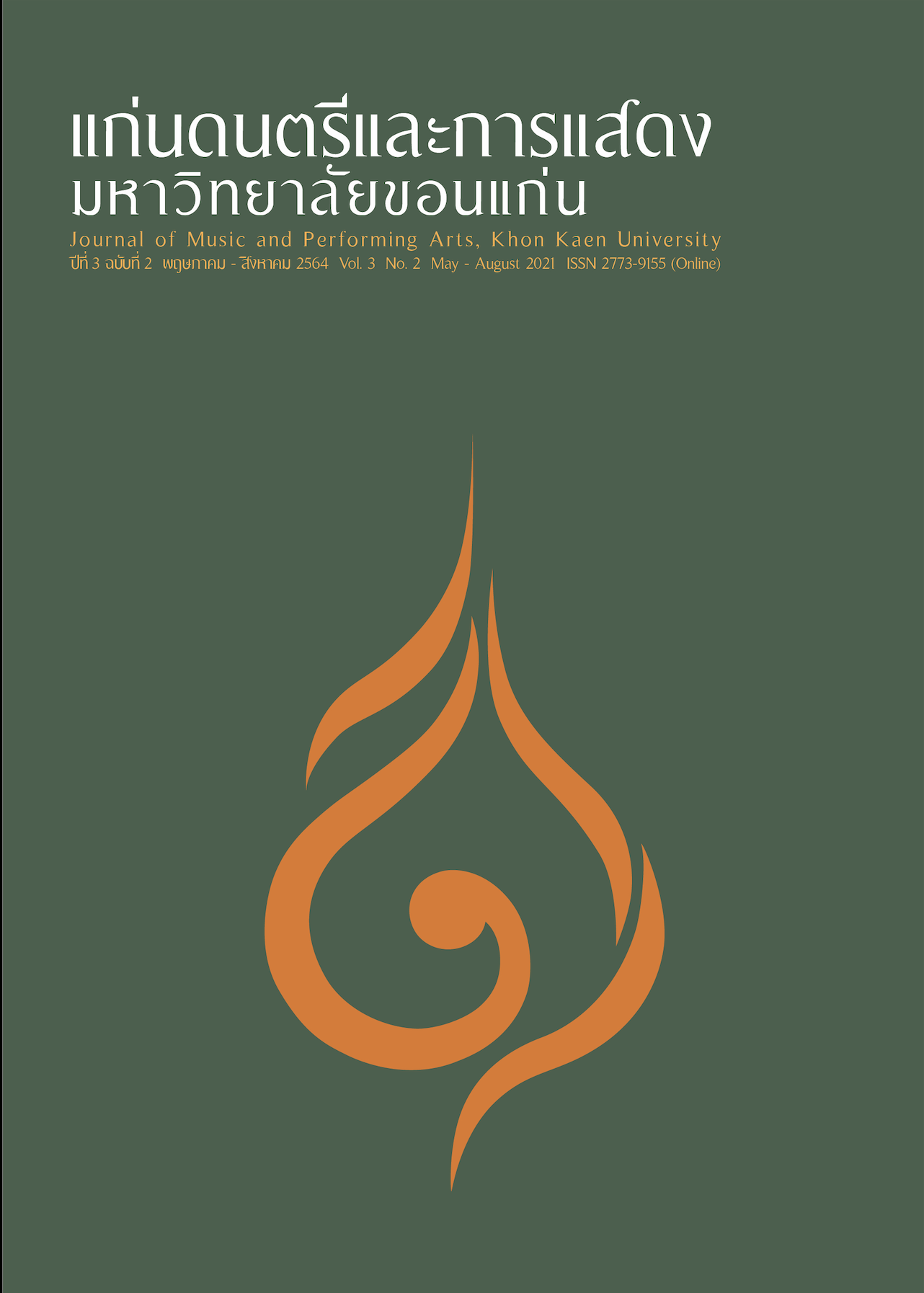เสียงเอื้อนในเพลงไทย
คำสำคัญ:
เอื้อน, เพลงไทยเดิม, เพลงขับร้องไทยบทคัดย่อ
บทความวิชาการนี้ ผู้เขียนมีความต้องการนำเสนอทัศนะเชิงประวัติศาสตร์ดนตรีไทย ซึ่งมุ่งประเด็นไปที่คีตศิลป์ไทย โดยเฉพาะการเอื้อน ซึ่งการเอื้อนเป็นส่วนประกอบสำคัญที่สร้างเอกลักษณ์ในการขับร้องเพลงไทย ทว่ามีผู้เสนอทัศนะที่เกี่ยวข้องกับการเอื้อนไว้หลากหลาย หนึ่งในนั้นคือทัศนะของนายสุจิตต์ วงษ์เทศ ที่เสนอว่าเพลงขับร้องไทยสมัยกรุงศรีอยุธยานั้นไม่มีเอื้อน และเพลงขับร้องไทยในปัจจุบัน ไม่เป็นที่นิยมเพราะเป็นปฏิปักษ์กับวัฒนธรรมเพลงป๊อป เมื่อทำการศึกษาเอกสารและบันทึกที่เกี่ยวข้องผู้เขียนเห็นว่า การศึกษาในศาสตร์ของคีตศิลป์ไทยจำเป็นอย่างยิ่งที่ต้องทำความเข้าใจในวิธีการขับร้องอย่างลึกซึ้งและนำความรู้ทางประวัติศาสตร์ศึกษาควบคู่ ผู้เขียนจึงขอเสนอบทวิเคราะห์ในบทความนี้ โดยมีวัตถุประสงค์เพื่อ 1. ศึกษาพัฒนาการและการดำรงอยู่ของเอื้อนในสมัยกรุงศรีอยุธยา 2. นำเสนอการเปลี่ยนผ่านของวัฒนธรรมการขับร้องไทยในสังคมร่วมสมัย โดยพบว่าการเอื้อนเป็นส่วนหนึ่งของขนบการขับร้องไทย มีร่องรอยทางประวัติศาสตร์ อาทิ การสวดของพระสงฆ์ และการขับร้องพื้นบ้าน และการปรับตัวของการเอื้อนไทยเพื่อให้เข้ากับวิวัฒนาการของสังคมไทยร่วมสมัย กล่าวคือ การกำเนิดของเพลงไทยสากล ที่ได้รับการผสมผสานทางวัฒนธรรมระหว่างดนตรีตะวันตกและการเอื้อนแบบไทย ดังนั้นบทความนี้จึงเป็นการเสนอทัศนะจากมุมมองของผู้ที่เกี่ยวข้องกับการเอื้อนโดยตรงเพื่อชี้ประเด็นของการมีอยู่และพัฒนาการของการเอื้อน อีกทั้งวัฒนธรรมดนตรีกระแสหลักและอนุรักษ์นิยมสามารถมีพื้นที่ของตัวเองและบางครั้งทำงานประสานกัน
ดาวน์โหลด
เผยแพร่แล้ว
เวอร์ชัน
- 2023-02-02 (2)
- 2021-08-31 (1)





